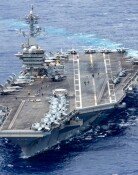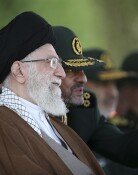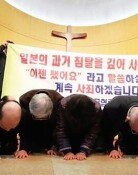[Editorial] 50th Anniversary of ROK-US Alliance
[Editorial] 50th Anniversary of ROK-US Alliance
Posted September. 30, 2003 23:03,
Today marks the 50th anniversary of the South Korea-U.S. military alliance. On October 1, 1953, when then Korean foreign minister Pyun Young-tae and then US secretary of state John Foster Dulles signed the mutual defense treaty between the ROK and the US, Korea was very poor, just pulling itself out of the disastrous war. Since then, however, Korea has achieved phenomenal economic growth and it is now the 12th largest economy in the world. In fact, due to the Korea-U.S. military alliance, Korea could focus on economic development, thereby emerging as a major player.
For the past five decades, US forces in Korea have faithfully done their job of protecting South Korea from a possible North Korean attack. Based on the military alliance, the two nations have developed their relations in every sector, including political, economic, social, and cultural sectors. At a dinner meeting cerebrating the 50th anniversary of the military alliance, President Roh Moo-hyun said, "Korea can repay the U.S.` help by contributing to world peace and development." Through the remarks, he seems to have expressed his willingness to strengthen the military alliance between the two nations for 50 years in the future, based on the performances that the two allies achieved for the past five decades.
There are so many obstacles to overcome to develop the military alliance further. The most important thing to do is to recover the close alliance. Recently, more and more people both in Korea and the U.S. do not consider the opposite as an ally any more.
Against this backdrop, the Korean government needs to be wise enough to make the pending issues of troops dispatch to Iraq and USFK relocation an opportunity to mend the ties. If the two allies reach agreement on the troops dispatch issue, it could give momentum to South Korea and the U.S.`s close cooperation to end the North Korea nuclear standoff.
The first thing to do is to restore the reciprocal partnership. Given that Korea`s status has become higher internationally, one-sided alliance does not make sense at all and Korean people do not support such an alliance. If the two nations help each other on an equal footing, it can lead to further development of the ROK-US alliance. In the long term, it is also good to discuss the future of the alliance after the reunification of the peninsula. We hope that the ROK-US alliance will pave the way for peace and prosperity of the Peninsula.







